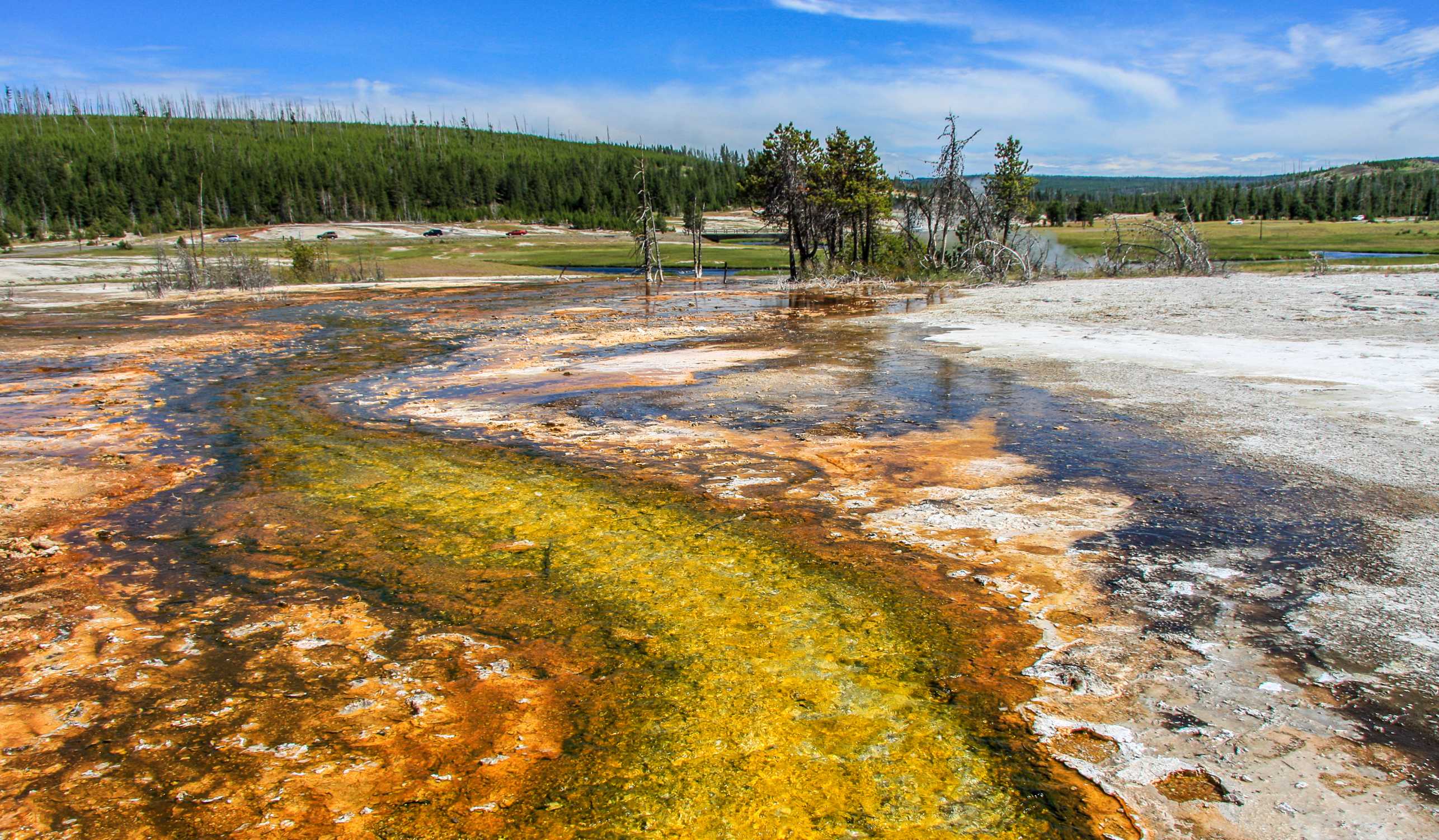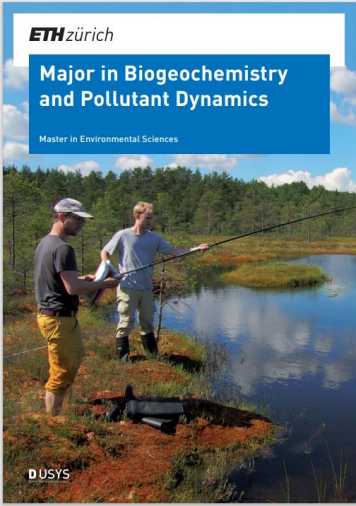Biogeochemistry and Pollutant Dynamics
Students majoring in Biogeochemistry & Pollutant Dynamics will analyse the response of aquatic, terrestrial, and atmospheric systems to changes induced by natural or human activities.

Students majoring in Biogeochemistry & Pollutant Dynamics will analyse for example greenhouse gas emissions, nutrient loads, and accelerated cycles of metals and organic substances. Moreover, they will investigate the distribution, transformation, and impacts of anthropogenic compounds, for example with integrative field studies based on trace analysis, stable isotope techniques, or transport measurements to identify the relevant transformation pathways, and find solutions to mitigate negative effects.
Biogeochemistry is an interdisciplinary science of physical, chemical, and biological processes controlling the regional and global cycles of elements and their compounds.
Biogeochemical Processes
This module consists of interdisciplinary courses on environmental microbiology, ecotoxicology, environmental organic chemistry, biogeochemistry of trace elements, and global material cycles. Students gain the ability to describe and analyse principles of biogeochemical processes and how they control the behaviour of various substances in the natural environment.
Applications
Students apply their knowledge on biogeochemical processes and pollutant dynamics. They discuss and develop sustainable solutions for relevant problems such as managing chemical risks, securing water resources, managing waste, dealing with nanomaterials, and limiting non-point source pollution.
Methods and Tools: Modelling Courses
Courses in this module aim at an integral understanding of biogeochemical transformation and transport processes. Students demonstrate conceptual thinking, perform risk assessments, analyse uncertainty, and critically evaluate modelling results.
Methods and Tools: Field and Lab Courses
Courses in this module equip students with analytical tools and hands-on skills needed in the field and lab, covering topics such as advanced organic and inorganic trace analysis, isotope ratio mass spectrometry, molecular ecotoxicology, and synchrotron-based techniques.
Term Paper Writing and Seminar
Students write a term paper about a current biogeochemical topic, discuss their findings with a faculty member, and present their results in a seminar. The seminar provides a forum for intellectual exchange among the student group and faculty.
Interests/Prerequisites
- Interest in interdisciplinary approaches involving chemistry, microbiology and physics
- Enthusiasm to integrate field work, laboratory analysis and computer modelling
Education and Learning objectives
- The education is provided by the Institute of Biogeochemistry and Pollutant Dynamics
- Developing a systemic understanding of the environment and its biogeochemical cycles
- Interest in interdisciplinary approaches involving chemistry, microbiology and physics
- Analysing, quantifying, and modelling chemical, physical and microbial processes
- Predicting the pathways of organic and inorganic pollutants in environmental systems and developing solutions to assess and mitigate negative effects on terrestrial and aquatic life
Possible careers
- Specialist for contaminated sites and remediation in an environmental office or at a government agency
- Project manager for water or wastewater infrastructures
- Expert for risk modelling in the insurance or financial sector
- Analyst of environmental samples in a laboratory in the field of ecotoxicology
Contact
I. f. Biogeochemie/Schadstoffdyn.
Universitätstrasse 16
8092
Zürich
Switzerland
